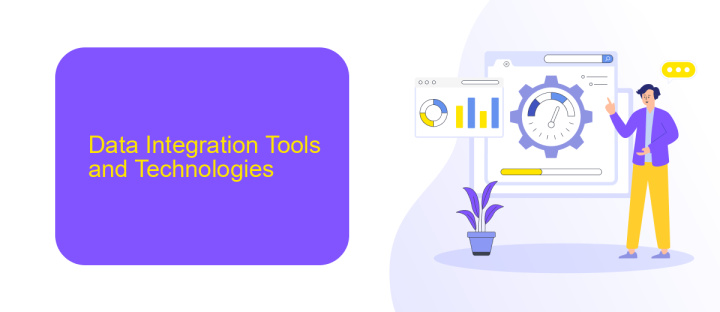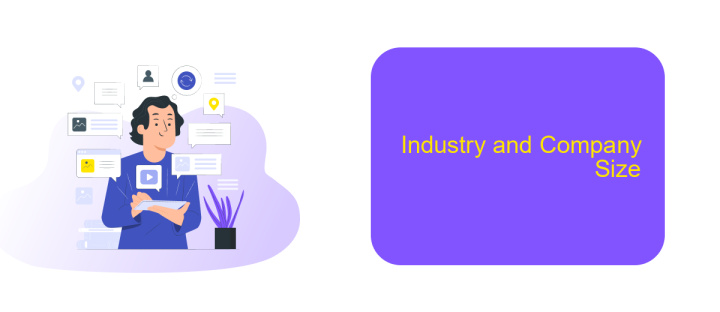Data Integration Salary
Data integration is a critical component in today's data-driven world, enabling seamless connectivity and analysis across diverse systems. As businesses increasingly rely on data for strategic decisions, the demand for skilled data integration professionals has surged. This article explores the salary landscape for data integration roles, providing insights into compensation trends, influencing factors, and regional variations to help professionals navigate their career paths effectively.
Introduction
Data integration has become an essential aspect of modern business strategies, enabling organizations to unify disparate data sources for better decision-making and operational efficiency. With the increasing complexity of data ecosystems, the demand for skilled data integration professionals has surged, leading to competitive salaries and benefits in this field.
- Growing demand for data integration specialists
- Competitive salary packages
- Essential skills and certifications
- Impact of tools like ApiX-Drive on salary trends
As companies strive to streamline their data workflows, tools like ApiX-Drive play a crucial role in simplifying the integration process. ApiX-Drive allows seamless connectivity between various applications and services, reducing the need for extensive manual coding and thereby increasing efficiency. This, in turn, influences salary trends as professionals proficient in using such tools are highly valued. Understanding these dynamics is key to navigating the data integration job market effectively.
Data Integration Tools and Technologies

Data integration tools and technologies are essential for combining data from various sources into a unified view, facilitating better decision-making and operational efficiency. These tools range from traditional ETL (Extract, Transform, Load) systems to modern cloud-based solutions. ETL tools like Informatica, Talend, and Microsoft SQL Server Integration Services (SSIS) have been widely used for years. They help in extracting data from different databases, transforming it into a suitable format, and loading it into a data warehouse or other storage systems. Cloud-based solutions such as Google Cloud Dataflow, AWS Glue, and Azure Data Factory provide scalable and flexible options for data integration, catering to the growing needs of big data and real-time analytics.
In addition to these, there are specialized services like ApiX-Drive that simplify the process of integrating various applications and services without requiring extensive coding knowledge. ApiX-Drive allows users to set up automated workflows between different systems, ensuring seamless data transfer and synchronization. This is particularly useful for businesses looking to streamline their operations and reduce manual data handling. By leveraging these tools and technologies, organizations can achieve more efficient data management, leading to improved business insights and performance.
Skills and Experience

Professionals in the field of data integration require a unique blend of skills and experience to excel. They must possess a deep understanding of data management principles, as well as the ability to work with various data integration tools and platforms. Effective communication skills are also essential, as these professionals often collaborate with cross-functional teams to ensure seamless data flow across the organization.
- Proficiency in data integration tools such as ApiX-Drive, Talend, and Informatica.
- Strong knowledge of SQL and database management systems.
- Experience with ETL (Extract, Transform, Load) processes and methodologies.
- Familiarity with APIs and web services for data connectivity.
- Ability to troubleshoot and resolve data integration issues efficiently.
- Excellent analytical and problem-solving skills.
- Strong understanding of data governance and compliance standards.
In addition to technical expertise, hands-on experience with platforms like ApiX-Drive can significantly enhance a data integration professional's effectiveness. ApiX-Drive provides a streamlined approach to setting up and managing integrations, enabling professionals to automate data workflows with ease. This experience not only boosts productivity but also ensures data consistency and accuracy across various systems.
Industry and Company Size

Data integration salaries can vary significantly depending on the industry and the size of the company. Industries such as finance, healthcare, and technology often offer higher salaries due to the complexity and critical nature of their data integration needs. These sectors require robust and secure data handling, which in turn demands highly skilled professionals.
Company size also plays a crucial role in determining salaries. Larger companies typically have more resources and can afford to pay higher wages to attract top talent. They often deal with vast amounts of data and complex integration processes, necessitating experienced data integration specialists.
- Finance: High demand for secure and efficient data handling.
- Healthcare: Critical need for accurate data integration to ensure patient safety.
- Technology: Rapid innovation requires seamless data integration solutions.
For companies of all sizes, utilizing services like ApiX-Drive can streamline the data integration process. ApiX-Drive offers user-friendly tools that simplify the integration of various applications and services, making it easier for businesses to manage their data efficiently. This can be particularly beneficial for smaller companies that may not have extensive in-house expertise.


Salary Trends and Outlook
The data integration field has seen a notable increase in salary trends over recent years. As companies continue to prioritize seamless data flow across various platforms, the demand for skilled data integration professionals has surged. According to industry reports, the average salary for data integration specialists has risen by approximately 10% annually, reflecting the growing importance of this role in modern business environments. Professionals with expertise in advanced integration tools and platforms, such as ApiX-Drive, are particularly sought after, often commanding higher salaries due to their ability to streamline complex data processes efficiently.
Looking ahead, the outlook for data integration salaries remains positive. With the continuous evolution of technology and the increasing reliance on data-driven decision-making, the demand for proficient data integration experts is expected to grow. Companies are likely to invest more in integration solutions like ApiX-Drive, which simplifies the process of connecting various applications and services, further driving the need for skilled professionals in this domain. As a result, those with specialized knowledge and experience in data integration are poised to see sustained salary growth and numerous career opportunities in the coming years.
FAQ
What is the average salary for a Data Integration Specialist?
What factors influence the salary of a Data Integration Specialist?
Is there a significant difference in salary based on location?
What skills are most valuable for a Data Integration Specialist?
How can one increase their salary as a Data Integration Specialist?
Time is the most valuable resource in today's business realities. By eliminating the routine from work processes, you will get more opportunities to implement the most daring plans and ideas. Choose – you can continue to waste time, money and nerves on inefficient solutions, or you can use ApiX-Drive, automating work processes and achieving results with minimal investment of money, effort and human resources.

